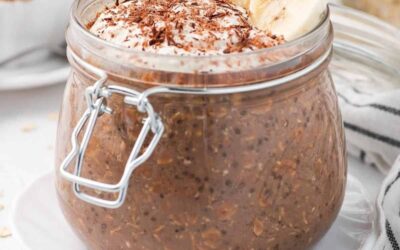While most of us know that our gut plays a role in digestion, not many people realise just how central the gut microbiome is to almost everything else in our bodies, including our hormones. This vast community of trillions of microbes is constantly working behind the scenes, shaping our immunity, metabolism, mood, and even the way our hormones behave.
When we move through menopause, those hormone shifts can feel overwhelming, and our gut health often makes the difference between a smoother transition and one filled with more difficult symptoms. Below, I will explain more about the gut microbiome in menopause, why it matters, and what practical steps can make a real difference during the menopause.
The Microbiome as a Central Regulator
It might be helpful to think of the gut microbiome as a busy control centre. Rather than just helping us digest food, it sends chemical signals throughout the body, connecting the dots between organs. The microbes are in constant conversation with the brain, the immune system, and our hormones.
When it’s balanced and diverse, this system helps us feel resilient. When diversity drops, things can unravel more quickly. The microbiome plays a critical role in:
- Regulating inflammation
- Balancing appetite and body weight
- Supporting mental wellbeing
- Recycling oestrogen and other hormones
As a result, it plays an important part controlling your hormonal balance in your body.
Menopause and Microbiome Changes
There is one group of microbes, called the estrobolome, and these are particularly important as these microbes can recycle old oestrogen and turn it back into active forms. That means they help smooth out some of the hormonal ups and downs of menopause.
What the research shows so far:
- Menopause is often linked with reduced microbial diversity.
- Less diversity means the gut has fewer skills, making it less resilient.
- Women with lower diversity may notice more inflammation, weight gain, poor sleep and mood changes.
So, when we think about menopausal symptoms, it’s not just about falling hormone levels, the state of our microbiome plays a big role too.
Diet, Fibre, and Microbial Diversity
If there’s one thing that consistently supports the microbiome, it’s fibre. Microbes love fibre as it’s their main source of fuel. When they break it down, they produce beneficial compounds that keep everything from our appetite to our brain function in check.
But unfortunately, in the UK, most people only eat about 15-20g of fibre per day, when we should be aiming for at least 30g. And it’s not just the amount that matters, it’s the variety. Different plants feed different microbes, and diversity in our food leads to diversity in the gut.
That said, here are some practical ways to do this:
- Mix it up: swap single fruit or vegetable choices for mixed packs, like mixed berries or colourful peppers.
- Add legumes: chickpeas, lentils, and beans are fantastic prebiotic foods.
- Enjoy fermented foods: yoghurt, kefir, sauerkraut, kimchi, or miso can bring in extra live microbes.
- Balance proteins and fats: oily fish and fermented dairy can complement a plant-rich diet and support long-term health.
Even simple swaps, like adding a spoonful of beans to a salad or mixing up your fruit bowl, can steadily build microbiome resilience.
Managing Digestive Symptoms
In addition, many women notice more bloating, constipation or changes in bowel movements during menopause. It’s easy to think “I just need more fibre,” but it’s not always that simple. Different types of fibre act differently, and sometimes too much, too soon can make symptoms worse.
Ways to support your digestion:
- Increase fibre slowly, giving the gut time to adapt.
- Try gentle fibres like psyllium husk for constipation.
- Stay hydrated, especially as oestrogen decline can affect fluid balance.
- Pay attention to posture during bowel movements, small adjustments can help.
The key is patience and experimentation. Everyone’s gut responds differently, so it’s about finding the right balance for you.
The Gut–Brain Connection
It’s not just digestion that changes in menopause, many women talk about brain fog, low mood, or anxiety. The gut has a direct line to the brain, known as the gut–brain axis, and it explains why nourishing the microbiome can also lift our mood and improve focus.
There are three main pathways:
- Immune: about 70% of the immune system sits in the gut, influencing inflammation and mood.
- Neural: the vagus nerve carries signals straight from gut to brain.
- Chemical: microbes produce compounds that can cross into the bloodstream and influence brain chemistry.
Studies now show that diets rich in plant diversity can improve mood and reduce symptoms of depression. This doesn’t mean medication isn’t important, but food can be a powerful tool alongside other treatments.
Weight and Metabolism
Weight gain during menopause is also extremely common, and it’s often linked with shifts in both hormones and the microbiome. Certain gut bacteria help regulate hormones like GLP-1, which control appetite and metabolism. In fact, this is the same pathway targeted by popular weight-loss medications.
By feeding our microbiome with fibre and plant diversity, we can naturally support these appetite-regulating pathways and make weight management a little easier during this stage of life.
Probiotics: When Are They Useful?
There’s a lot of talk about probiotics, but here’s the reality: most people don’t need a daily probiotic supplement if their diet is diverse and plant-rich and they are not particularly beneficial for menopause symptoms. That said, in specific situations, like after antibiotics or when tackling certain imbalances, targeted probiotic strains can be very helpful.
What matters most is matching the right strain to the right issue. Random probiotic blends won’t do much. For general menopause support, the focus is better placed on food variety and fibre.
Practical Takeaways for Menopause and Gut Health
Looking after your microbiome through menopause doesn’t need to be complicated. Small, consistent steps add up.
- Eat the rainbow: colourful plant foods give your gut microbes a wide range of fuel.
- Fibre first: aim for 30g daily, but increase gradually.
- Add fermented foods: they can boost diversity and reduce inflammation.
- Don’t fear healthy fats and proteins: oily fish, nuts, and seeds are protective.
- Think long-term: extreme or restrictive diets can backfire by reducing microbial diversity.
Summary
Your gut microbiome plays a surprisingly powerful role in menopause, not only in hormone regulation, but also in mood, metabolism, and overall resilience. By feeding your microbes with a diverse, fibre-rich diet and taking small, sustainable steps, you can help ease symptoms and set yourself up for better long-term health.
If you’d like personalised guidance to support your gut health and make menopause more manageable, get in touch with me today. Together we can create a plan that truly works for you.




